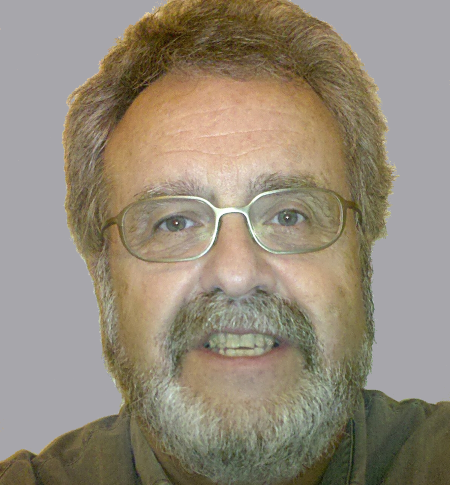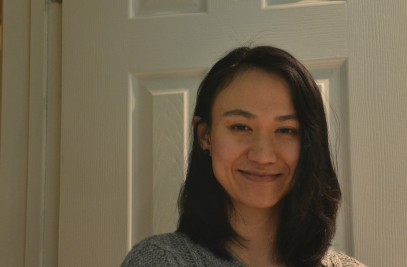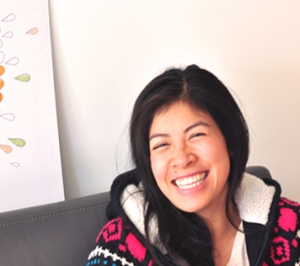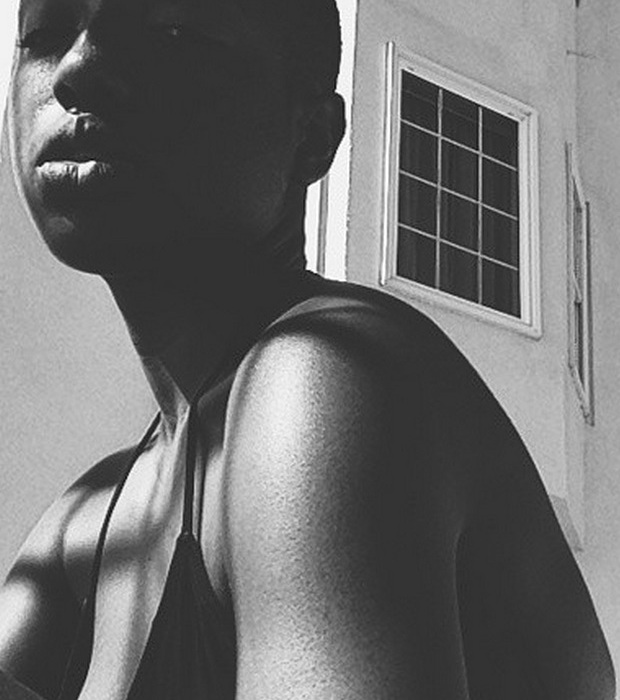 On Nov. 29th, the three co-directors of Staging Our Histories (Arpita Bajpeyi from Ottawa, Sinead Cox from Goderich Township, in rural Southwestern Ontario and Marie-Anne Gagnon of Montreal) met with colleague Christina Parsons via the magic of the internet to talk about the origins and concept of the event. Find Part II here.
On Nov. 29th, the three co-directors of Staging Our Histories (Arpita Bajpeyi from Ottawa, Sinead Cox from Goderich Township, in rural Southwestern Ontario and Marie-Anne Gagnon of Montreal) met with colleague Christina Parsons via the magic of the internet to talk about the origins and concept of the event. Find Part II here.
Christina Parsons: So welcome, why don’t we start off with personal intros and an introduction [to Staging Our Histories].
Arpita Bajpeyi: Sure! We’re all graduates of the Carleton University Public History program.
Marie-Anne Gagnon: I am a public historian from Montreal. During my Master’s at Carleton, I had the pleasure of studying with Arpita and Sinead. We all participated in a Performance and Narrativity seminar in the Department of History [with David Dean], which is where little mind wheels started turning.
Sinead Cox: After graduation we were trained and excited to actually do history in public in inclusive and innovative ways. But we weren’t finding opportunities to necessarily do so right off the bat. Maybe Arpita wants to describe the exact moment Staging our Histories came into being.
Arpita: I think the exact moment for me was after a summer of volunteering for some really great organizations, and enjoying it immensely, but also missing Public History, and the things that used to interest and inspire me daily.The performances from David [Dean]’s class had stuck with all of us I think, and I remember walking out of his class wanting more of that experience, and being able to share it. So I got in touch with Sinead and Marie-Anne to see if they would be interested in taking on this project, to do just that.
Sinead: [Carleton] was a great environment for us, to both interact with wider theories and the current practice of public history, and to pursue histories that were very personal to us, that we were passionate about. And although we met in the same program, we had very different historical interests.
Marie-Anne: Public History has for many years been a way to push history outside of academia, by working more directly with museums and heritage organisations. But even outside of university walls, public history can be relatively conservative, sticking to the written word and physical objects. That’s why some historians are turning to performance as a new and exciting way to explore history
Arpita: And that’s why performance is such an amazing way to push those boundaries.
Marie-Anne: By partnering with storytellers, dancers, musicians, we can find more embodied, present, and emotional ways of experiencing our histories
Why Perform History?
Christina: Theories of performance in history are pretty cutting edge. Is breaking that wall with the public very new in the realm of history?
Marie-Anne: I think the public is accustomed to a certain way of interacting with history – mostly through museums.
Arpita: That isn’t to say that historians (however you want to classify them – academically trained or otherwise) haven’t been experimenting and challenging their various audiences for some time now.
Marie-Anne: Of course film and living history sites perform history for the public, but not in the same way as stage arts do.They can be great ways to spark an interest in history for audiences that are hard to reach by more traditional means. They often try to pair entertainment with educational material. But I don’t think that’s what we’re trying to do
Sinead: [Performance] is a way that history is already being shared, and has always been shared. So we’re not reinventing the wheel in any way, but we want to look at those methods seriously, and reflectively, and see how the storytelling avenue itself impacts the history. I don’t think it’s a new way to tell history, but I think understanding performance as history in the same way you understand a written source as authoritative is maybe still not the norm?
Arpita: Yeah, bang on there, Sinead. I think that’s something that’s really important to us here, is re-examining ‘traditional’ methods of sharing history and taking them as seriously as ‘modern’ ones.
Sinead: The interactive element of performance, what an audience brings in real time, is also something that I think can’t be underestimated.
Christina: Those are all really great points. I also really like the intersectionality that you are very consciously pursuing.
Marie-Anne: I think it might be worth adding that we’re not looking for performances that present history as fact. We welcome creativity, as the past can hold many truths, not all of them the cold hard facts of traditional historiography
Sinead: The idea for the event also comes from as a grad student reading a lot about performance and history, and it’s maybe more productive to just, well put on a show and do it. Which we got a taste of in David’s class; we all had to do a performance. Arpita danced. Marie-Anne sang. I had a little theatre piece. And we want to do that on a larger scale, with a mixed audience of academics, the arts community and the general public, and explore, as you said Christina, the intersectionality!
Arpita: Quite! I think we’re also looking for self-reflexivity, and an understanding that each story comes with its own baggage that needs to be understood and acknowledged.
Sinead: Good point! We’re really focusing on performances that explore history, and history telling, and are self-reflexive, rather than a straightforward interpretation, if such a thing exists.
The Honesty of Performance
Christina: Does performance allow for more self-reflexivity and truths than other mediums?
Marie-Anne: Performance allows the performers to explore their own personal baggage about certain events that touch them in some way, and to show to their audience how they are aware of their own biases.
Arpita: In some ways, I think it does allow for more self-reflexivity – though some mediums more than others. Film might more easily avoid it than, say, a poem.
Marie-Anne: Bias is usually regarded as something bad, to be avoided, or camouflaged. But in performance, history tellers can embrace their biases and show how history matters to them.
Arpita: There is definitely something very intimate and personal about a performance, and this will be emphasized by the nature of our venue too!
Sinead: I think with performance, just the connotation of that word, there’s more acknowledgement of artifice, of storytelling, than in written sources which are often taken as authoritative and reliable, and authentic, which is of course not always the case. So I think there’s perhaps an honesty or an understanding that there is art involved, a particular perspective. So I don’t know if it’s more truthful, but I think it is inherently reflexive.
Arpita: Yeah, I really like that. An inherent honesty.
Christina: Does that lead to more personal histories intertwining with larger narratives?
Marie-Anne: I am hoping we might get some performers who intertwine oral history and performance. Oral history is very big in academia at present. I think people are realising more and more that personal stories matter.
Continue to Part 2
To follow the rest of the discussion, and learn more about what Arpita, Marie-Anne and Sinead envision as the outcome of Staging Our Histories and its successful submissions, look for Part II on Monday, December 1st. Many thank yous to Christina Parsons for her time, and for her thoughtful questions as our moderator. You can hear much more from Christina in her upcoming podcast, H is for History, and read her work at History Watch.
You’ve read how the co-directors imagine Staging Our Histories, but the reality will be up to you, and the challenging, surprising and powerful work you submit by January 9th! Read more about the submission guidelines here.
If you have any queries for Arpita, Marie-Anne or Sinead before you submit, email us at StagingHistories@gmail.com.








